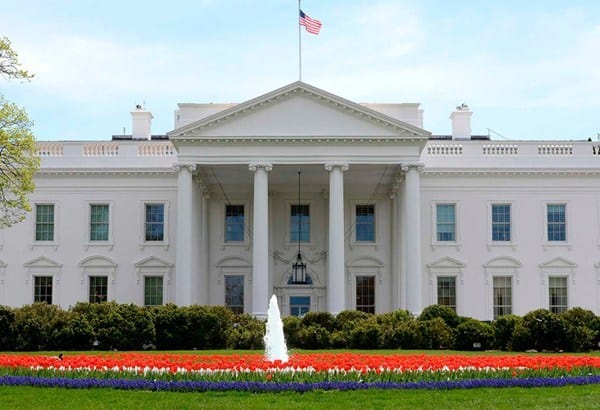WASHINGTON – The US Senate leaders and the White House agreed Wednesday to a nearly $2-trillion stimulus package to combat the economic fallout of the coronavirus outbreak, including direct payments to most Americans and a half-trillion-dollar fund to shore up struggling companies.
The deal includes $500 billion for a major corporate liquidity programme through the Federal Reserve, $367 billion for a small business loan programme, $100 billion for hospitals and $150 billion for state and local governments.
It will also give a one-time cheque of $1,200 to Americans who make up to $75,000 a year. Individuals with no or little tax liability would receive the same amount, unlike the initial Republican proposal that would have given them a minimum of $600.
The agreement caps five days of intense negotiations that started Friday when Senate Majority Leader Mitch McConnell, a Republican, convened Republican and Democratic colleagues, with talks stretching late into the evening each of the following four days.
“At last we have a deal. … the Senate has reached a bipartisan agreement,” McConnell said during a speech on the Senate floor early hours of Wednesday, pledging that the Senate would pass the package later in the day.
Senate Democratic Leader Charles Schumer hailed the legislation as “the largest rescue package in American history.”
This bill is far from perfect, but we believe the legislation has been improved significantly to warrant its quick consideration and passage,” he said.
The final talks were conducted among McConnell, Schumer, Treasury Secretary Steven Mnuchin, White House legislative affairs director Eric Ueland and incoming White House chief of staff Mark Meadows.
Schumer kept in close touch throughout the process with Speaker Nancy Pelosi, a Democrat, who introduced her own $2.5 trillion bills Monday.
“Ladies and gentleman, we’re done. We have a deal,” Ueland told reporters, breaking the news after one of the final meetings in McConnell’s office after midnight Tuesday night.
Ueland noted that staffers would work into Wednesday morning to finish the text of the bill, but that when it came to some of the negotiation’s largest sticking points they already have language agreed to “or we know exactly where we’re going to land.”
Mnuchin said early Wednesday morning that President Trump was “pleased” with the deal and urged Pelosi to take up the Senate bill and pass it without changes.
“This is a very important bipartisan legislation that is going to be very important to help American workers, American business. … We couldn’t be more pleased. Spoken to the president many times today, he’s very pleased with this legislation and the impact this is going to have,” he told reporters.
Pressed if that meant Trump would sign it if it reaches his desk in its current form, he added: “Absolutely.”
Congress is under intense pressure to quickly pass the deal and reassure both the markets and an American public rattled by the spread of the coronavirus, with the United States having more than 55,000 confirmed cases as of Tuesday night, according to John Hopkins University.
The deal hammered out by negotiators provides $30 billion in emergency education funding, $25 billion in emergency transit funding and creates an employee retention tax credit to incentivize businesses to keep workers on payroll during the crisis.
It will also provide $25 billion in direct financial aid to struggling airlines and $4 billion for air cargo carriers, two industries that have taken a big hit in the economic downturn.
Senate Republicans on Tuesday were characterizing the direct assistance as “snap loans” instead of grants, to avoid the stigma of the proposal being called a bailout, but it has yet to be determined how the government would be compensated.














